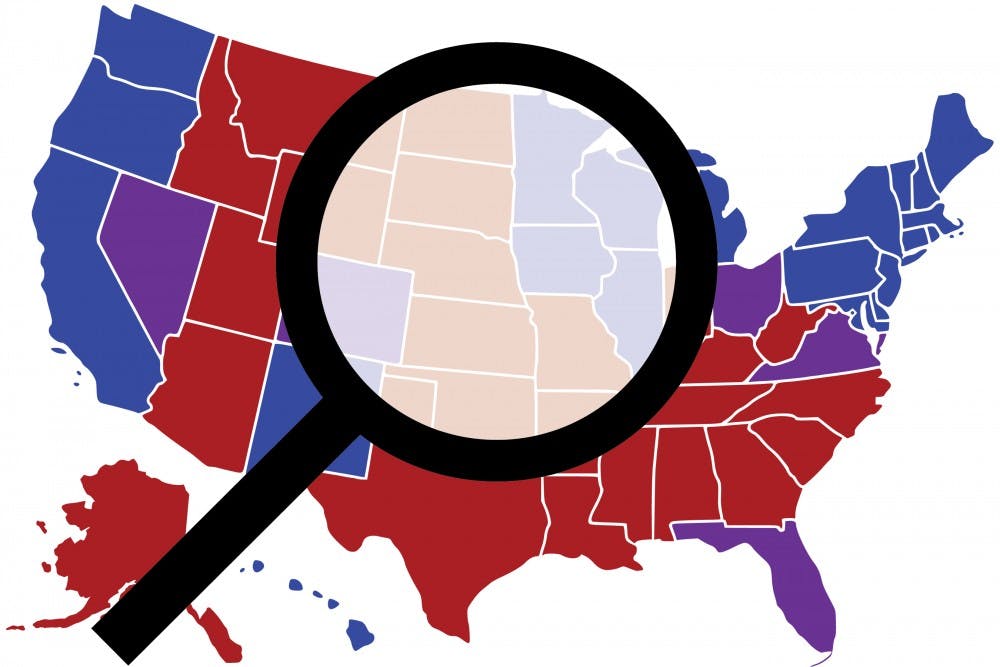The 2016 United States presidential election cycle — with both parties featuring unorthodox political contenders and extensive global media coverage — has been an unprecedented surprise for the American electorate and, perhaps more so, for international students.
At Penn, international students have borne witness, much to their surprise and concern, to what is turning out to be a historic election for American politics.
Two of the major surprises this election cycle have been the emergence of 1968 Wharton graduate Donald Trump as the current front-runner for the Republican nomination and the rise of Sen. Bernie Sanders (I-Vt.) — a self-proclaimed democratic socialist — as a serious contender for the Democratic presidential candidacy.
The real estate mogul’s rise wasn’t shocking to some international Penn students, such as Engineering senior Zahed Saifi from Jordan.
“I actually wasn’t surprised by Donald Trump to be honest,” said Saifi, who is half Lebanese. “I always thought that if you scare the American public and tell them what they want to hear then you’re obviously going to end up getting the votes. In the past [President George W.] Bush used this tactic, a lot of other presidents have used this tactic. Back then it was 9/11 and Al Qaeda, now it is ISIS, refugees and the Paris attacks.”
Currently, Trump leads the Republican field with 743 delegates out of the 1,237 needed to secure the nomination without a contested convention. On the Democratic side, Sanders trails former Secretary of State Hillary Clinton by an estimated 250 pledged delegates, although her lead is significantly greater when including superdelegates.
For certain international students, Trump and Sanders’ emergence was easy to understand because of Americans’ dissatisfaction with the status quo under President Barack Obama. College junior Jesus Alcocer, who is Mexican, said that the American electorate is reacting to the big policy changes enacted under Obama’s administration, such as the Affordable Care Act.
“When you go to political science classes they always say that candidates are going to be close to the median voter,” Alcocer said. “The truth is that, in retrospect, it doesn’t seem like a surprise because it is a reaction to Obama’s administration. He implemented some really big reforms, very ambitious.”
Alcocer noted that, although many Mexicans regard Trump as a “clown,” the current election cycle has brought a lot of citizens into the political process who previously felt disillusioned with the government.
The amount of people expressing differing opinions was surprising to Wharton junior Aneesh Kancharla, who is Australian. Although Kancharla expressed concern for the amount of support Trump’s unsubstantiated claims have received, he also noted the benefit in the range of opinions seen so far in the elections.
“It is definitely a surprise for me because our system is much more constrained in regards to the diversity of views you get,” Kancharla said. “Most of Australian politics fits within the Democratic party ... I think it is a really good thing that there has been so much differences in opinion and a much more hardly contested [election] than people might have thought.”
Another shocking aspect for many international students has been the behavior among some of the candidates. Many students expressed concern for the lack of substance in the Republican debates and the overwhelming amount of name-calling and personal attacks.
Ife Emmanuel, a Nigerian exchange student who grew up in the United Kingdom, noted that although heated exchanges between British politicians is normal, the type of disputes he has seen at Republican debates contrasts with the British standard.
“You get instances like that in U.K. parliament as well,” said Emmanuel, who pointed out that living in the U.S. during the elections has made it much more striking for him. “In the U.K. you get that. Not to the extreme of talking [about penis size], but you do get some name calling and jokes thrown around. That is not foreign for me.”
For Robert Vladareanu, a Wharton freshman from Sweden, the Republican candidates’ lack of civility during debates was striking, describing debates as “the best reality TV show on the market right now.”
“It is very unusual from a Swedish or European perspective,” Vladareanu said. “That would be very uncommon and frowned upon in Sweden. Sweden is a very politically correct country and people are pretty sensitive about politics. Even though there is some trash talking it is very indirect and a bit subtle.”
Vladareanu also pointed out that Sanders is perceived as radical by some in Sweden, a democratic socialist country. The freshman said that although he agrees with his goals for universal healthcare and education, his populist rhetoric and style is unfamiliar to Swedes.
“I would say he is considered radical even in Sweden because he has a certain type of flair that isn’t common in Sweden,” Vladareanu said. “In Sweden politicians are pretty passive and quiet when it comes to politics.”
Saifi agreed with the Swede’s view regarding the presidential candidates’ behavior. He pointed out how the United States is a leading country of the world in comparison to his home country of Jordan and that the country’s politicians should set an example, as they are always in the media’s spotlight.
“I would expect U.S. politicians to act better than those in other countries.” said Saifi, noting that Jordanians have been paying attention to Trump and the 2016 U.S. elections. “They have a responsibility to act differently.”









